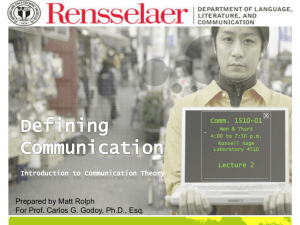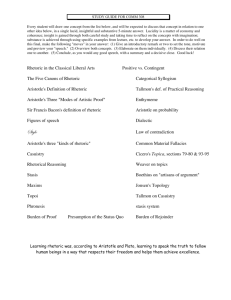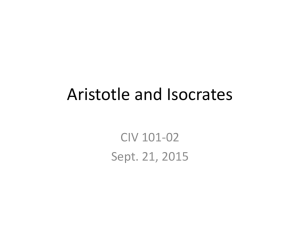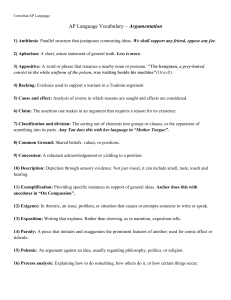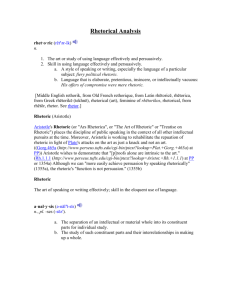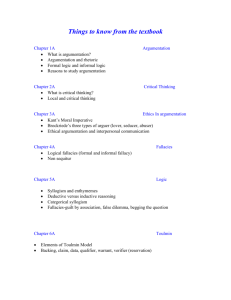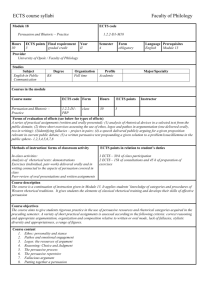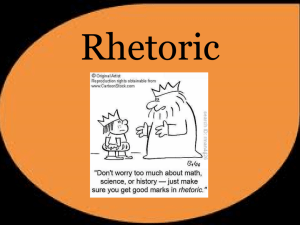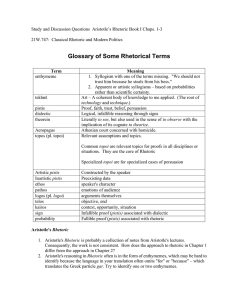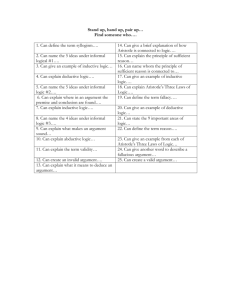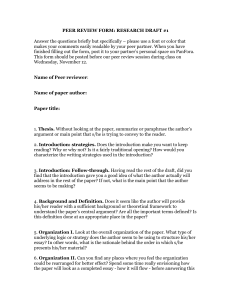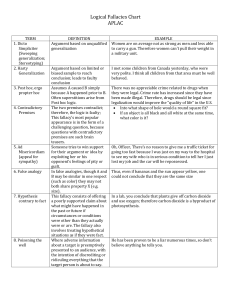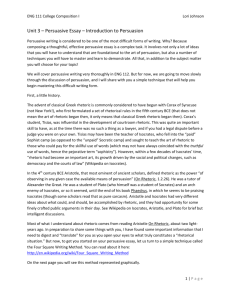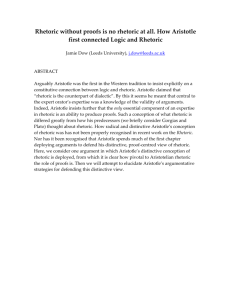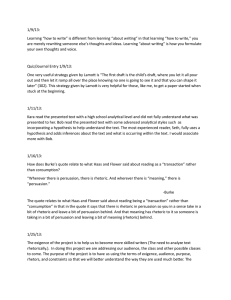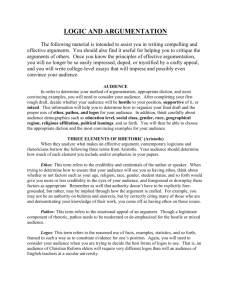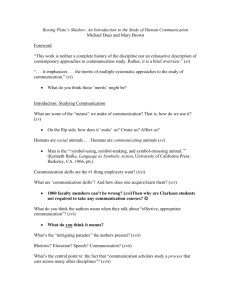File - Argument + Debate
advertisement
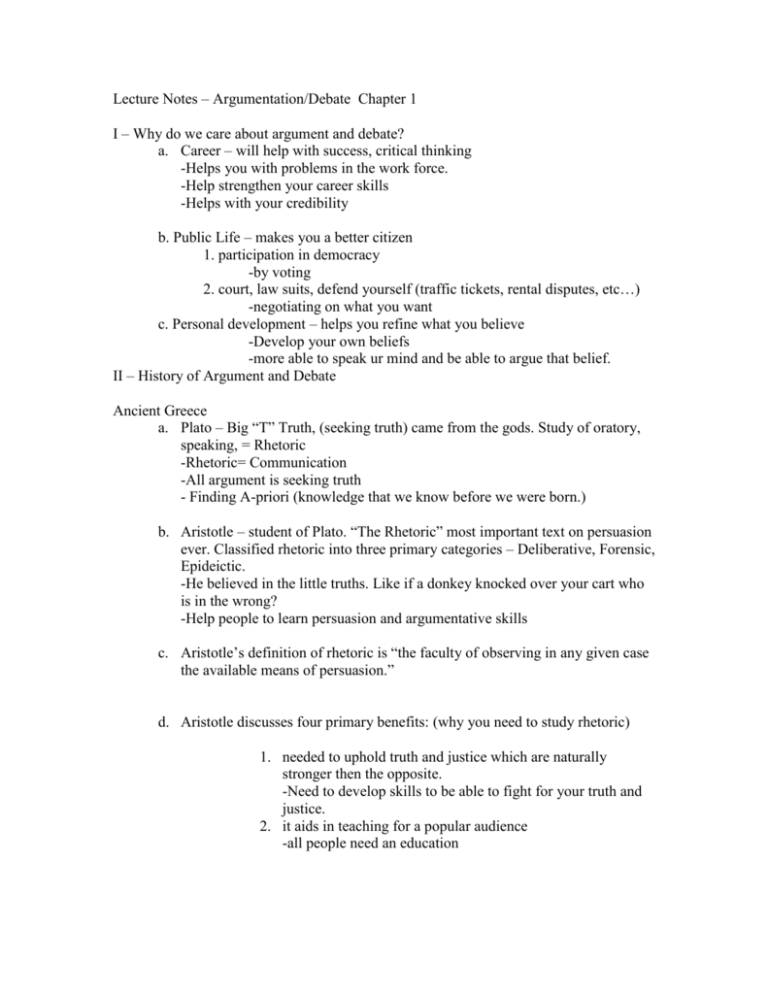
Lecture Notes – Argumentation/Debate Chapter 1 I – Why do we care about argument and debate? a. Career – will help with success, critical thinking -Helps you with problems in the work force. -Help strengthen your career skills -Helps with your credibility b. Public Life – makes you a better citizen 1. participation in democracy -by voting 2. court, law suits, defend yourself (traffic tickets, rental disputes, etc…) -negotiating on what you want c. Personal development – helps you refine what you believe -Develop your own beliefs -more able to speak ur mind and be able to argue that belief. II – History of Argument and Debate Ancient Greece a. Plato – Big “T” Truth, (seeking truth) came from the gods. Study of oratory, speaking, = Rhetoric -Rhetoric= Communication -All argument is seeking truth - Finding A-priori (knowledge that we know before we were born.) b. Aristotle – student of Plato. “The Rhetoric” most important text on persuasion ever. Classified rhetoric into three primary categories – Deliberative, Forensic, Epideictic. -He believed in the little truths. Like if a donkey knocked over your cart who is in the wrong? -Help people to learn persuasion and argumentative skills c. Aristotle’s definition of rhetoric is “the faculty of observing in any given case the available means of persuasion.” d. Aristotle discusses four primary benefits: (why you need to study rhetoric) 1. needed to uphold truth and justice which are naturally stronger then the opposite. -Need to develop skills to be able to fight for your truth and justice. 2. it aids in teaching for a popular audience -all people need an education 3. compels us to examine both sides of the issue -not both but all sides of the issue -defend why you are right -you might be wrong 4. needed for self-defense. You will always have to defend your ideas in life -help you identify scams/dishonest persuasion -make critical decision e. Ethos – perceived credibility of the speaker f. Pathos – use of emotion g. Logos – use of logic h. Deductive arguments, Syllogism – structure of deductive argument 1) Major Premise – All People are mortal. 2) Minor Premise – Socrates is a person. 3) Conclusion – Socrates is mortal. Enthymeme – syllogism that intentionally leaves out minor premise or conclusion for persuasive effect. III – Contemporary definition of Argumentation a. “Argumentation is the process of formulating, presenting, and defending claims.”
